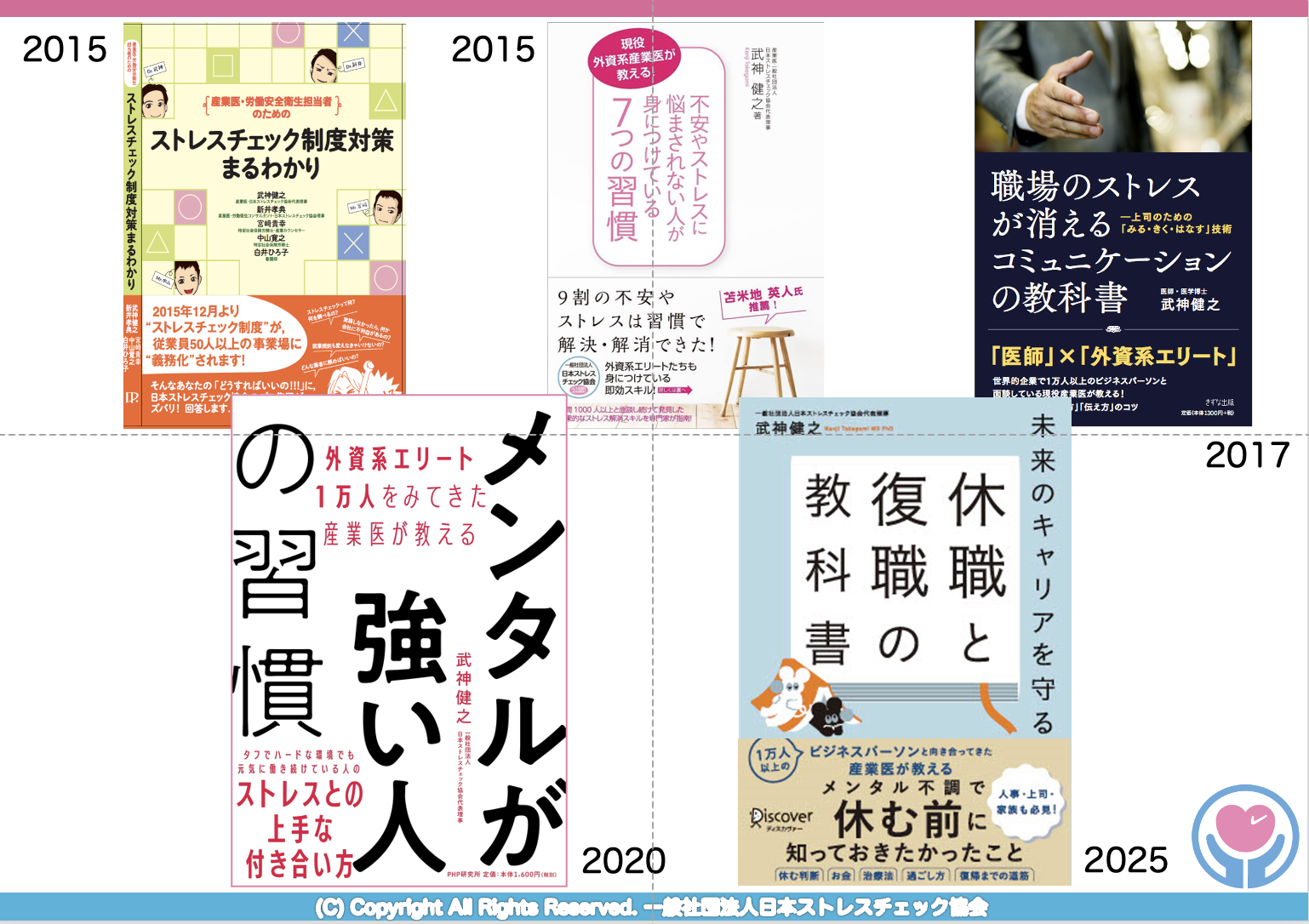n An accumulation of tiredness is commonly estimated by overtime work hours.
nPeriod before the onset of the symptom.
n Within one week → within six months.
n Relationship between overwork time and brain / heart disease.
n >100 hrs, within 1 month →Strong relationship!
n >80 hrs, within 2-6 months →Strong relationship!
n >45 hrs →Relationship exists.
n <45hrs, within 6months →Weak relationship.
n Factors that indicates Rousai apart from overtime work hours.
n Changes in quality and amount of work
n Changes in his/her position
n Changes in his/her working partners
n Communication problems with other workers
n Health check-up and caring for his/her health

